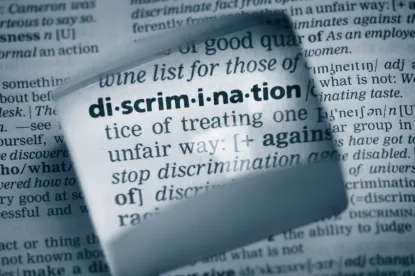Does language in the Age Discrimination in Employment Act (ADEA) exempting “employers” with fewer than 20 employees apply to state governments or their subdivisions?
Collin O’Connor Udell of Jackson Lewis attended the U.S. Supreme Court argument held on October 1, 2018, in Mount Lemmon Fire District v. Guido, No. 17-587. She wrote the amicus curiae brief in support of the Petitioner on behalf of the State and Local Legal Center, which was joined by the National Conference of State Legislatures, the Council of State Governments, the National Association of Counties, the National League of Cities, the United States Conference of Mayors, the International City/County Management Association, the International Municipal Lawyers Association, the National Public Labor Relations Association, and the International Public Management Association for Human Resources.
Background
- Firefighters in Arizona’s Mount Lemmon Fire District, an Arizona government subdivision, alleged they were fired and replaced by much younger workers, in violation of the ADEA.
- The ADEA defines “employers” as persons “engaged in an industry affecting commerce who [have] 20 or more employees” for much of the preceding year. The statute later states that an “employer” “also means … any agent of such a person and … a state or political subdivision of a state.”
- The firefighters in this case argued that Congress’ use of the term “also means” separates the ADEA’s first definition of “employer” and second definition of “employer, so the twenty-employee minimum applies to private employers only.
- The Mount Lemmon Fire District argued that the ADEA’s first definition of “employer” includes public entities and, therefore, the 20-employee minimum applies to both public and private employers, and exempts the Fire District.
- The U.S. District Court of Arizona held that the Mount Lemmon Fire District was exempt from the ADEA because it had fewer than 20 workers.
- The U.S. Court of Appeals for the Ninth Circuit, in conflict with the U.S. Courts of Appeals for the Sixth, Seventh, Eighth, and Tenth Circuits, reversed the district court’s ruling and held that the ADEA applies to state political subdivisions of any size.
Why It Matters
Hundreds of thousands (perhaps millions) of people across the United States receive essential public services (fire suppression, emergency medical services, water treatment, and more) from subdivisions of their state governments. Many have very small budgets and maintain a small staff. In order to respond quickly to ever-changing budgets and personnel and financial challenges, let alone fires, floods, and medical emergencies, these small subdivisions and special districts require maximum flexibility when it comes to hiring and firing, setting salaries, and adjusting work assignments. These entities cannot afford to be tied up in age discrimination lawsuits without significantly impairing their ability to perform important public services.
At the oral argument, the Supreme Court Justices focused almost exclusively on the language of the statute. Some Justices seemed to agree with the firefighter’s counsel and counsel for the Solicitor General’s office that a natural reading of the term “also means” refers to a new, distinct category of employers that would not obviously be subject to the 20-person threshold. But Mount Lemmon’s counsel urged an interpretation of “also means” as a transitional phrase signifying amplification and clarification. As Mount Lemmon’s counsel argued, “This is a strange statute that was written in a strange way.” He described the interpretive choice as one “between a reading that is, at worst, mildly ungrammatical and one that is wildly untenable.” Whether the textualist approach urged by the firefighters will win the day remains to be seen.
Next Steps
The eight Supreme Court Justices currently sitting on the Court will now take the briefs and oral arguments under advisement. A written decision on this case is not expected for several months.





 />i
/>i
